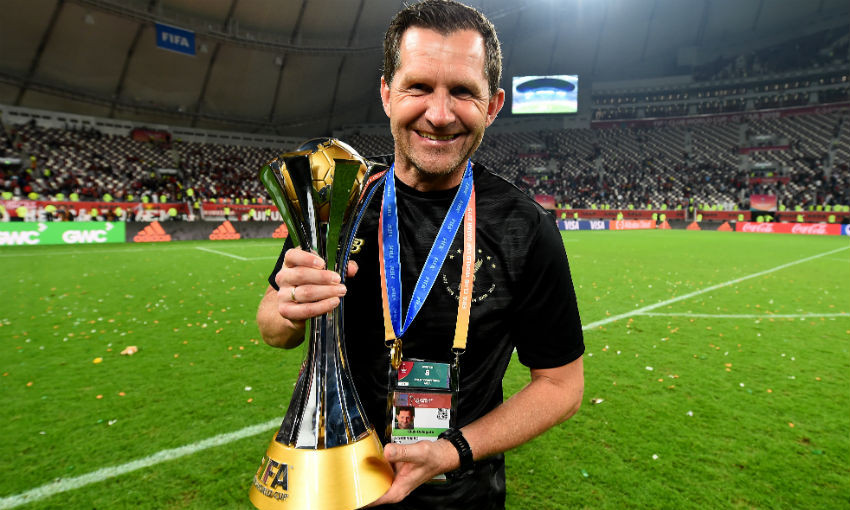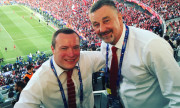Behind the Badge: John Achterberg's passionate pursuit of perfection
John Achterberg calls it his ‘mad passion’ and then tells a story that backs up this colourful description.
Liverpool’s head of goalkeeping is discussing the period of his life when the first career he forged in football began to merge into the second; his time as a player/coach with Tranmere Rovers, a club at which he is revered as a legend.
Driven by the pursuit of perfection that he exudes to this day - “He’s one of the hardest-working people I’ve ever met, he works as a coach 25 hours a day,” as Jürgen Klopp once put it - Achterberg refused to bow to circumstance.
“I always wanted to be the best in what I did. I have this mad passion, that’s the problem!” the Dutchman tells Liverpoolfc.com.
“When I was 12, I already trained every day; sometimes I trained twice a day. I can tell you, at one time when I was a Utrecht professional I was training four times - twice with the first team, with the U18s and the reserves.
“You can say that is not healthy and it was not the best way to do it, but at the end it also makes you a career by practising and doing things to learn all your skills.
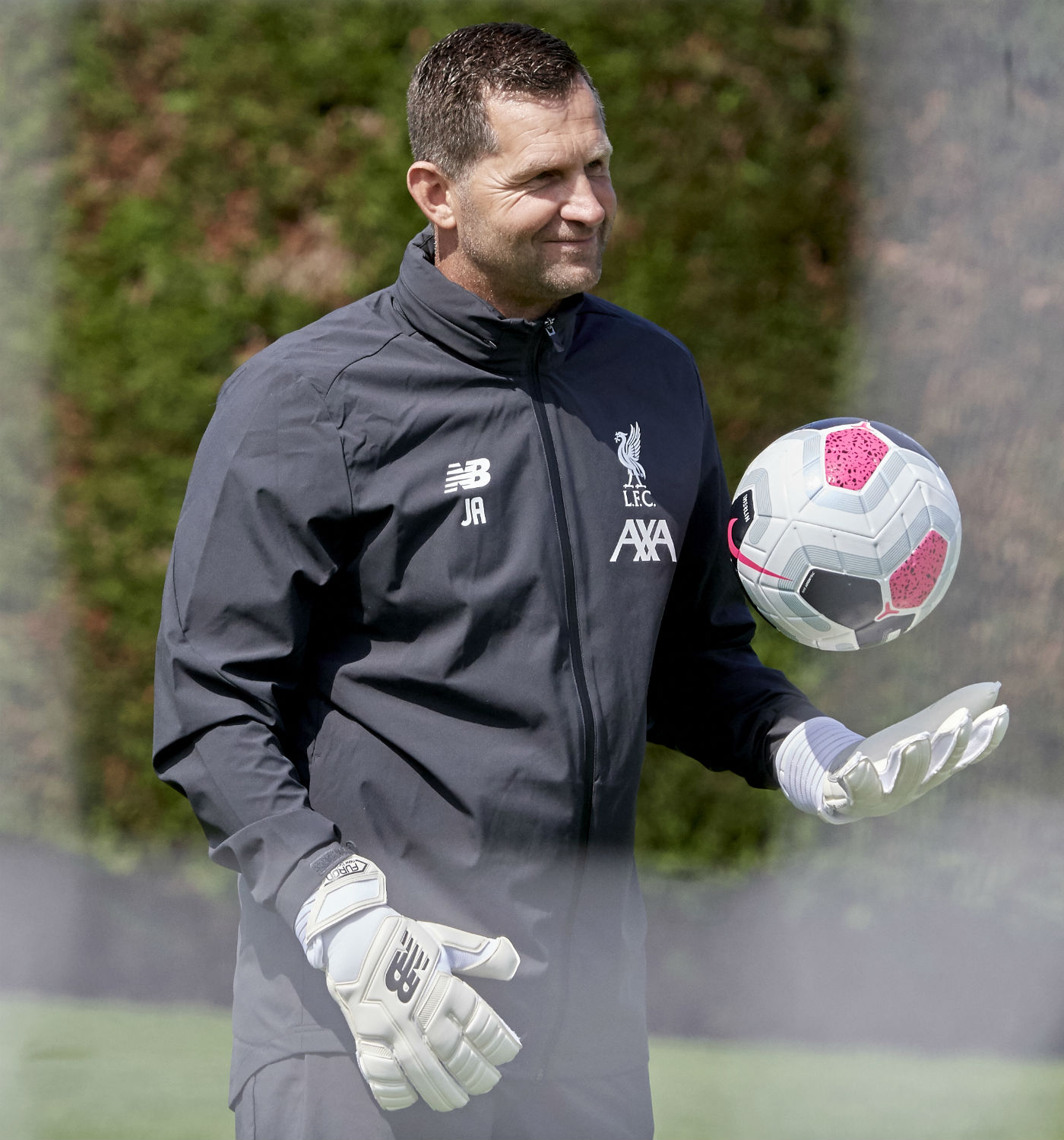
“When I did the coaching, I bought all my gear and all the training gear I had in Tranmere was all my own gear because Tranmere in the academy had not a lot of money, so I decided to buy everything: balls, cones, I had a ball machine, a football tennis net, everything you can think of that was on the market, I tried to get just to help the boys to develop.
“I also bought my own floodlights because at Ingleborough they had no lights and the goalies were diving on this carpet on concrete; I said, ‘That’s not right for a goalkeeper.’ So I go on the internet, I think it was eBay, and I bought these big lights.
“The first session I did, we had some building lights and my car lights and I put them on Ingleborough to start. We had the small square, but obviously the battery of the car was gone. So we needed to find a new solution! I bought these floodlights, made big holes in the grass and put a massive pole in it, so we had two either side.”
It was, it’s fair to say, a far cry from the pristine pitches of Melwood, where Achterberg has practised in his current role since the summer of 2011.
He continues: “We had 40 metres squared where we could dive. When it was really bad it was like a pig farm where you have a mud bath.
“But on the other side, you’re creating mentality - the boys were black with mud, you couldn’t see what they wear. It was funny. But then you create a little bit of mentality as well; we had to adapt.
“Then I was making sessions in the main stand, the high stand at Tranmere, to do some jumping exercises, leg hops, double leg hops, some running - to try to do something if it was not possible to train on there. You try to be inventive all the time.
“I ended up going to Shaftesbury [Youth Club] to train there and killed their pitch, they stopped it after one year because the goalies made a lot of damage.
“That’s what you tried. In the end, I made some goalie schools around, I took them also training at [other] pitches because at least they could dive on the grass and there were lights. You try to be inventive and help them; buy your own balls to have good equipment to help them. In the end I was making my own gloves, I had some goalkeeping gear to help all the goalies as well.
“It probably cost me more money than it made but, for me, I get paid by Tranmere, I want to invest.”
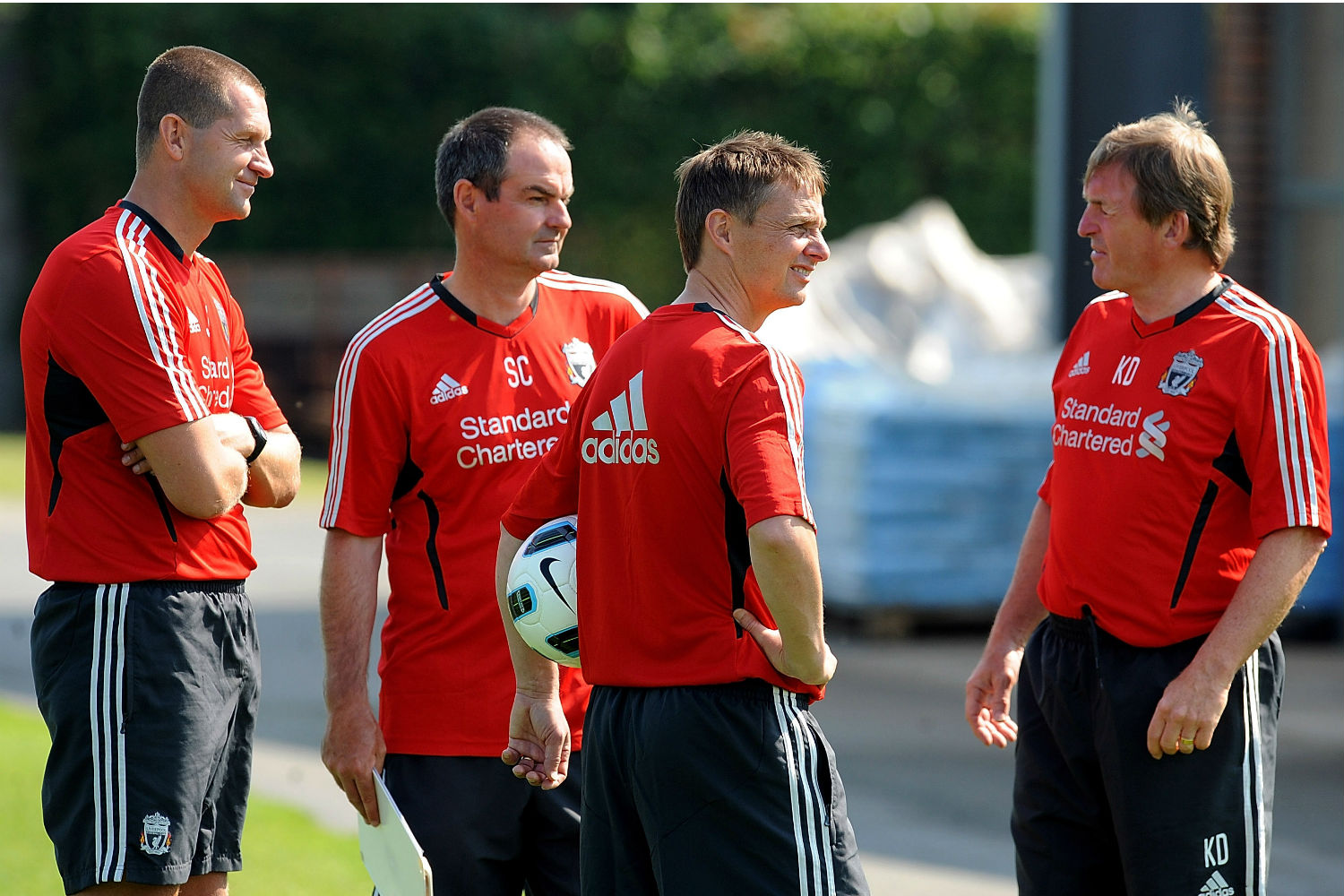
Achterberg joined Liverpool from Tranmere ahead of the 2009-10 season and was initially based at the Academy.
He was, it would turn out, well suited to the club - and, specifically, the demands placed on its goalkeepers - having been subscribed to a strategic vision since childhood.
“When I was 14 I was playing in the first team of my local team and the manager was an ex-professional from my hometown, Utrecht. He always said to play high lines and try to sweep up behind, so you are learning to play on the front foot a lot and you take that into your career,” the 48-year-old remembers.
Achterberg’s first professional steps were taken with NAC Breda in his early 20s, by which stage the attitude Klopp would refer to many years later was already rooted in his psyche.
“My motto was always that I wanted to be better than anyone else, my belief is hard work pays off and you keep working harder.
“If there was one who was at that time in a better position than me, as people thought, he was more in a better position, then I always thought I would be working twice as hard to make sure I can overtake him. That’s what I always had wherever I go.”
A desire to be a No.1 goalkeeper led Achterberg to drop down a level from the Dutch top flight to FC Eindhoven in 1996 and, two years later, an offer from Merseyside - and a certain John Aldridge - would change the course of his career and life.
“It was 1998-99 I think. I did my fitness with a Dutch Premier League team, Willem II, and I was looking for something to happen,” he recalls.
“I could come on trial at Tranmere for two weeks. I was really fit; at Willem II the fitness level was mad. So I was really prepared to go there and when I came there I played two games and had two clean sheets, I think in both games I saved a penalty.
“We had good players with David Kelly, Alan Mahon, and Liam O’Brien was still there. Training was really going well. In the end, John said he wanted to sign me. That’s how it happened.
“And then obviously you start playing. It was a great experience. My mentality was always big, also for Dutch people I was probably in the high ranks of being obsessed by wanting to improve and wanting to work hard.
“Then I had to learn different things in England; the kicking has to be always 100 per cent spot on. I had to learn how to make clean sheets, if you like. That is a quality I learned in England, not in Holland, because in Holland it was not an issue if you were losing 1-0 or 2-0. It was quite different.
“I was also from Europe, so you have to be better than anyone else, that was my feeling. I had to fight to make results. That’s what I learned in England. It made me a more complete goalkeeper.
“Although it was a little bit the same way, he [Aldridge] wanted the goalie to be sweeping up, playing high lines and coming for crosses. That fitted the way I was and that’s where it came from.”
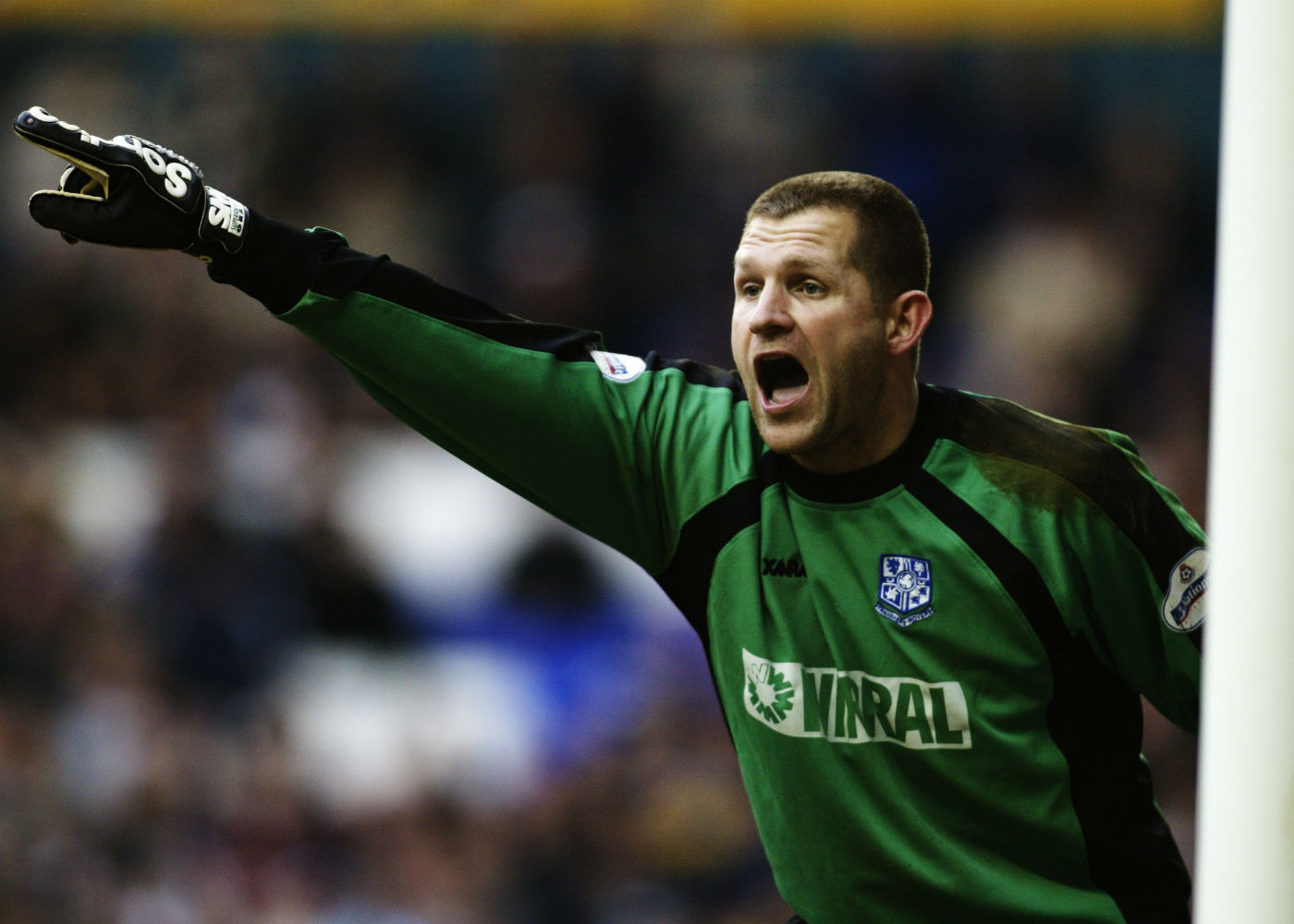
Tranmere were, at that time, in the second tier of English football and renowned as cup-competition specialists under the management of Liverpool icon Aldridge.
“Hard to beat, play long balls, second ball and press high,” is Achterberg’s summation of their style of play.
Rovers reached the final of the League Cup in 1999-00 and played in the last eight of the FA Cup in back-to-back seasons, with their defeat at that stage in 2001 being inflicted by the Reds, who ran out 4-2 victors at Prenton Park.
Another FA Cup quarter-final followed in 2004, three years before Achterberg’s brief spell away from the club after the expiration of his contract. He quickly rejoined as a player/coach and would make his 300th Tranmere appearance in 2008.
Having dabbled in coaching throughout his playing career, Achterberg was comfortable with the transition and knew the type of goalkeeper he would seek to develop: first at Tranmere then, from 2009, at Liverpool.
“For me, this profile I already had myself when I was at Tranmere. I wanted the goalies to be 1.90m at least - around 1.90m. They have to be quick and they have to be able to play with their feet,” he explains, of the attributes he still prizes today.
“From my own way of play, high lines and on the front foot; in your mind, you have to think, ‘Can I win the ball? Then I need to win it before anyone else.’ This is the way I try to teach as well, even in my Tranmere situation. You try to teach this and this is the same now.
“I don’t know if I was ahead of it in the way I think but in the Liverpool way it’s always attacking football too, so that means the way I think, a goalkeeper has to be able to defend that space. That’s how I always thought.
“I always thought, and how I learned in Holland - if you can play high lines and defend the space behind the defenders, you can also play for a team that plays with 11 in [defence] because you only have to be in the right position to make the save.
“But the other way around is a lot more difficult, because if you always play in a goal where you just stay in a goal, you cannot make the switch to be high out of the goal. I always thought to myself, ‘I need to teach the kids to play high lines’ because if you can do all this, when you’re younger you’re learning this quicker than when you’re older.
“And you give them the right thinking and the right mentality by being always on the front foot. If you are on the goalline you’re not always on the front foot because you just wait for when a shot comes on the goal.”
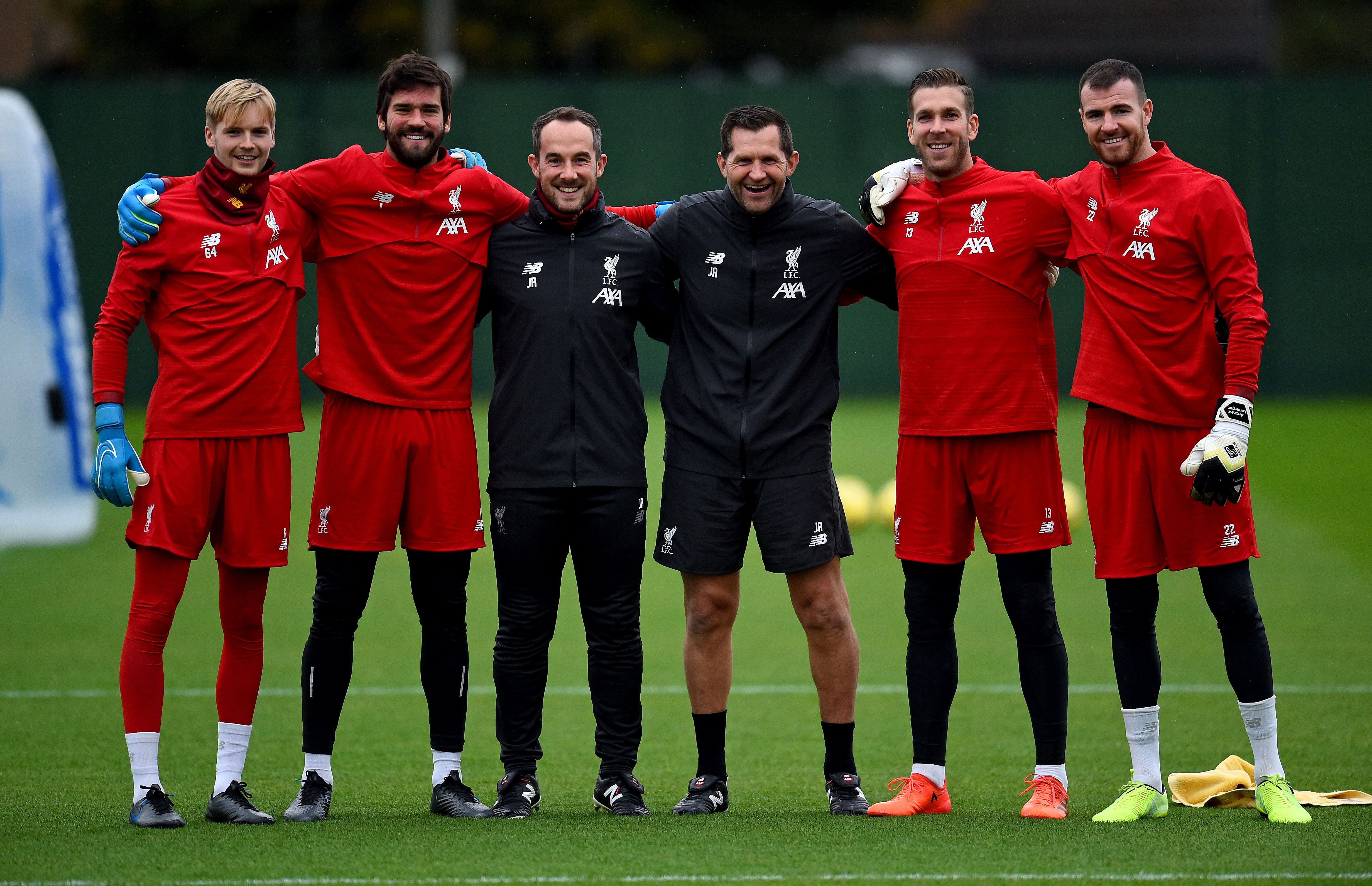
This proactive philosophy informed his coaching methods with up-and-coming ’keepers.
“I always thought my young goalkeepers, even the U9s, I want them to play high lines. In Tranmere’s sessions I took all the ones who played in the small goal together and moved with the ball over the pitch and then I tell them all at the same time: ‘If the ball is here you should be in this position, if the ball is there you should be in that position.’
“Then we create free-kicks, corners, I throw balls in behind so they need to communicate. All the goalkeepers learn together at the same time, that’s what I also did with the goalkeepers from [age] 12 up in the big goals. You’re learning that. When I came to the Liverpool Academy and I started in the Academy, I did the same sessions.
“All together learning, ‘OK, the ball is in this position you need to make this angle, the ball is there you have to be in that angle.’ You are all at the same time teaching them with their mind where they have to be and how they have to be on the front foot and be ready.
“In Liverpool we had more resource because we had a video room, so we made videos from every goalkeeper; we take three or four good situations and one or two negative and we showed all the kids. Then you ask the questions: what do you think? What could be better? Was this good? You’re learning the feet and body positioning and the technical shape.
“Next to it, you need to do the passing and kicking and all that stuff. That drives me mad sometimes, people saying the goalie needs to learn goalkeeping in the team but that is not possible because there are so many technical, tactical skills involved that needs individual training. Next to it, you have to teach the goalkeeper in the team training to always make decisions because then you’re learning to make the right decisions.
“But first and foremost you have to teach them technically; how they have to move, passing left foot, right foot, they have to pass and move in the right way, they have to be positioned in the goal the right way.
“My thinking is always teaching the goalkeepers in the goal as much as we can because that’s how they learn the angles, the body positioning, the feet positioning, shoulder positioning and the hands.
“In the end, not everyone can be the top-level goalkeeper but, for me, if you are working with them you want to give them a chance to make a career as a goalkeeper. That can be League Two, Conference, League One, whatever; not everyone can play for Liverpool, that’s clear. But we try to help them reach that.”
Achterberg has worked under three managers - Kenny Dalglish, Brendan Rodgers and Klopp - as a member of the Reds’ first-team coaching staff, and speaks in glowing detail about the transformational, and ongoing, work overseen by his current boss in partnership with the club’s owners.
“Obviously since Jürgen came in, we made massive strides to make the next steps,” he notes.
“They [Fenway Sports Group] have always been searching to try to find, with the recruitment - Michael [Edwards] and the boys - the players and making steps, invest more.
“When the boss came, the boss had a massive input in what happens now, in the way he manages, in the way he created the team and created the environment, and way the boss makes things happen in the club in a professional way.
“He got Mona [Nemmer] in, and Andreas [Kornmayer], to make the food and physical sides more professional. Pep [Lijnders] was brought back because he could help, he already had Peter [Krawietz], who helped him a lot with all the stuff he needed for the games. The boss created the team himself around him that he is happy with.
“Then Vitor [Matos] came in later, Jack [Robinson] is helping me as an assistant now, which is great. Also because I’m getting a bit older so you need some younger guy, and to help him again to develop as well. That is the way the boss has created this situation in the club.
“The owners have made that step every year, they look to improve and that’s what happens. That’s what you’ve seen over the years. It’s the same with the players; every time we’re finding better players, better players came and you saw the quality change every year.
“The next step is made. In the end, we are on the right way, I would say.”
More from our Behind the Badge series


